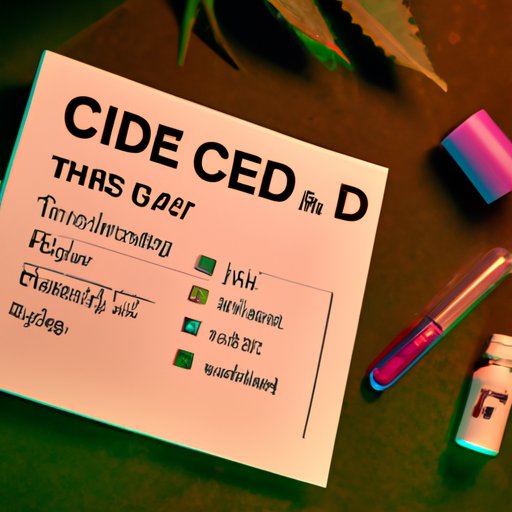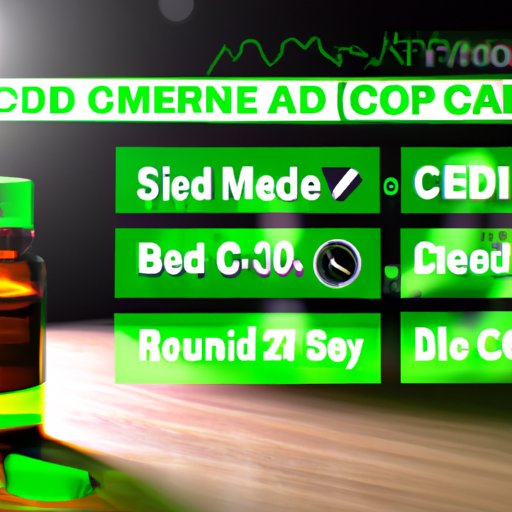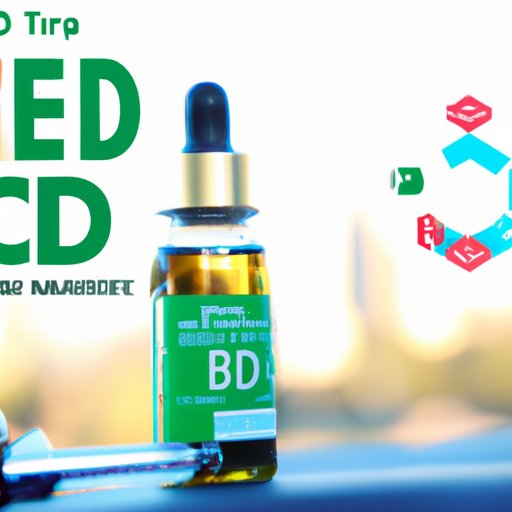How Long Does CBD Take to Work?
CBD or cannabidiol is an extract from the hemp plant, known for its potential health benefits. CBD is getting more and more popular as a natural remedy for many conditions, such as anxiety, pain, and inflammation. But one of the questions CBD users often ask is: how long does CBD take to work?
There is no straightforward answer to that question, as the effects of CBD can vary widely depending on various factors. In this article, we’ll cover everything you need to know about CBD timing, including how it enters the body, how long it takes to work, and how to optimize dosage and timing to get the maximum benefits.
CBD Oil: A Comprehensive Guide to Understanding Its Effects and Timelines
Before diving into how long CBD takes to work, let’s first discuss what CBD oil is and how it’s made. CBD oil is extracted from the hemp plant through various methods, such as CO2 extraction or solvent-based extraction. It is then formulated into various products, including tinctures, edibles, topicals, and more. One of the critical factors to look for when choosing a CBD product is the type of oil used.
The three primary types of CBD oil are full-spectrum, broad-spectrum, and isolate. Full-spectrum CBD oil contains all the compounds naturally found in the hemp plant, including THC, which is responsible for the psychoactive effects of marijuana. Broad-spectrum CBD oil contains all the compounds except for THC. Finally, CBD isolate contains only pure CBD, with no other compounds.
When it comes to legality, CBD derived from hemp is federally legal in the US as long as it contains less than 0.3% THC.

From Ingestion to Absorption: All You Need to Know About CBD Timing
CBD can enter the body in two main ways: ingestion and inhalation. Ingestion methods include edibles, tinctures, and capsules, while inhalation methods include smoking or vaping. When ingested, CBD needs to go through the digestive system and liver before reaching the bloodstream, so it takes longer to take effect than inhaled CBD.
It generally takes around 30 minutes to two hours for CBD to take effect when ingested, depending on various factors. These factors include your body weight, metabolism, the type of CBD product you’re using, and the dosage.
Inhalation methods, such as smoking or vaping, allow CBD to enter the bloodstream faster. The effects can be felt almost immediately, usually within minutes of inhaling. However, the effects of inhaled CBD tend to wear off quicker than those of ingested CBD.

CBD Dosage and Timing: How to Optimize It for Your Needs
Optimizing CBD dosage and timing is critical to get the maximum benefits of CBD. Generally, it’s best to start with a low dosage and gradually increase it until you feel the desired effects. This method can help you avoid any potential side effects while finding the right dosage for your needs.
When determining the right dosage, it’s crucial to consider your body weight, metabolism, and the severity of your symptoms. Each person’s optimal dosage will be different, so it’s essential to start with a low amount and track your progress.
The timing of CBD dosage can also impact its effects. For example, taking CBD right before bed will help promote relaxation and potentially improve sleep quality. If you’re using CBD to manage pain, taking it before exercise may help reduce inflammation and improve recovery time.
The Science Behind CBD Uptake: What Determines How Long It Takes to Work?
For CBD to work, it needs to be absorbed into the bloodstream and transported to the target area. After ingestion, CBD is broken down in the liver before circulating into the bloodstream. Inhaled CBD enters the lungs and diffuses directly into the bloodstream.
Various factors can impact how long it takes for CBD to work, such as the type of CBD product, method of consumption, and individual differences in biology. For example, some people may have a faster metabolism, so it may take less time for them to feel the effects of CBD, while others may have a slower metabolism, so it may take longer for them to feel the effects.

Maximizing CBD Benefits: Timing and Dosage for Different Conditions
CBD can potentially help with various conditions, such as anxiety, chronic pain, and inflammation. However, the timing and dosage of CBD can vary depending on the condition you’re looking to treat.
For anxiety, taking a low dose of CBD throughout the day may be most effective. For chronic pain and inflammation, it can be helpful to take CBD before and after strenuous activities, such as exercise.
It’s important to keep in mind that CBD is not a cure or treatment for any condition. Instead, it can potentially help manage symptoms and improve overall well-being. Before using CBD for medical purposes, it’s essential to speak with a healthcare professional to determine if it is right for you.
Conclusion
In conclusion, CBD timing can vary significantly depending on various factors. CBD can enter the body through ingestion or inhalation, and the effects can take anywhere from a few minutes to a few hours to take effect. Optimizing dosage and timing can help you get the most from your CBD use, but it’s essential to start low and gradually increase your dosage. With the information provided in this article, you can make informed decisions about using CBD to improve your health and well-being.
